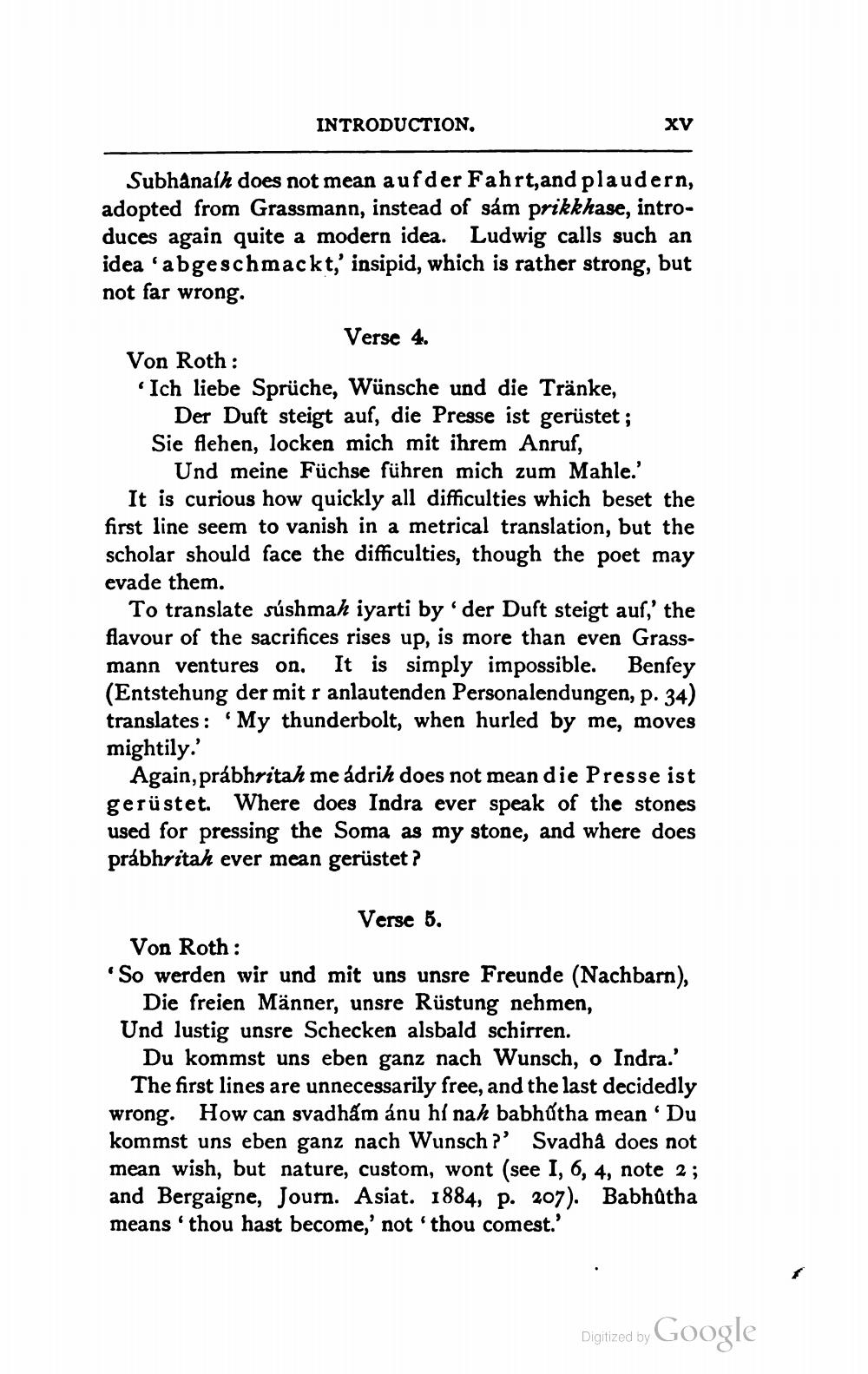________________
INTRODUCTION.
Subhanaíh does not mean auf der Fahrt,and plaudern, adopted from Grassmann, instead of sám prikkhase, introduces again quite a modern idea. Ludwig calls such an idea abgeschmackt,' insipid, which is rather strong, but not far wrong.
C
Verse 4.
XV
Von Roth:
'Ich liebe Sprüche, Wünsche und die Tränke,
Der Duft steigt auf, die Presse ist gerüstet ; Sie flehen, locken mich mit ihrem Anruf,
Und meine Füchse führen mich zum Mahle.' It is curious how quickly all difficulties which beset the first line seem to vanish in a metrical translation, but the scholar should face the difficulties, though the poet may evade them.
To translate súshmah iyarti by 'der Duft steigt auf,' the flavour of the sacrifices rises up, is more than even Grassmann ventures on. It is simply impossible. Benfey (Entstehung der mit r anlautenden Personalendungen, p. 34) translates: My thunderbolt, when hurled by me, moves mightily.'
Again, prábhritah me ádrih does not mean die Presse ist gerüstet. Where does Indra ever speak of the stones used for pressing the Soma as my stone, and where does prábhritah ever mean gerüstet?
Verse 5.
Von Roth:
'So werden wir und mit uns unsre Freunde (Nachbarn), Die freien Männer, unsre Rüstung nehmen, Und lustig unsre Schecken alsbald schirren.
Du kommst uns eben ganz nach Wunsch, o Indra.' The first lines are unnecessarily free, and the last decidedly wrong. How can svadhẩm ánu hí nah babhutha mean' Du kommst uns eben ganz nach Wunsch?' Svadhâ does not mean wish, but nature, custom, wont (see I, 6, 4, note 2; and Bergaigne, Journ. Asiat. 1884, p. 207). Babhûtha means 'thou hast become,' not 'thou comest.'
Digitized by Google




